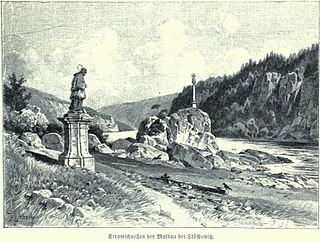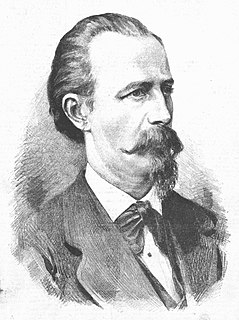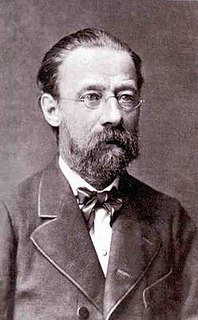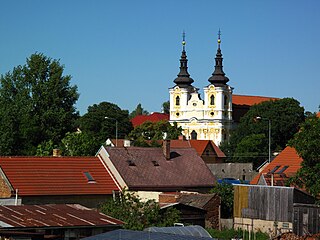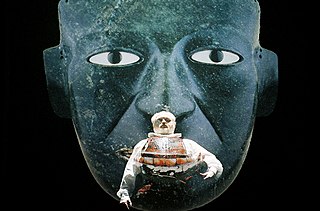Má vlast is a set of six symphonic poems composed between 1874 and 1879 by the Czech composer Bedřich Smetana. While it is often presented as a single work in six movements and – with the exception of Vltava – is almost always recorded that way, the six pieces were conceived as individual works. They had their own separate premieres between 1875 and 1880; the premiere of the complete set took place on 5 November 1882 in Žofín Palace, Prague, under Adolf Čech, who had also conducted two of the individual premieres.
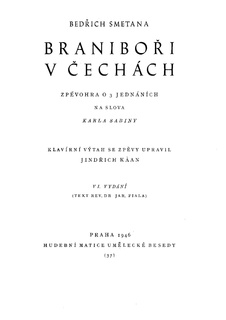
The Brandenburgers in Bohemia is a three-act opera, the first by Bedřich Smetana. The Czech libretto was written by Karel Sabina, and is based on events from Czech history. The work was composed in the years 1862–1863. Smetana and Sabina wrote the opera at a time of great Czech patriotism, with the pending opening of a new theatre for production of Czech operas in Prague.

Dalibor is a Czech opera in three acts by Bedřich Smetana. The libretto was written in German by Josef Wenzig, and translated into Czech by Ervin Špindler. It was first performed at the New Town Theatre in Prague on 16 May 1868. The opera received criticism at the time for being overly influenced by German opera, including that of Richard Wagner.
Mary Jarred was an English opera singer of the mid-twentieth century. She is sometimes classed as a mezzo-soprano and sometimes as a contralto.

Štěchovice Reservoir is a dam on Vltava River built from 1937 to 1945 as the second stage of the Vltava Cascade. The dam is named after nearby village Štěchovice.

Libuše (help·info) is a '"festival opera" in three acts, with music by Bedřich Smetana. The libretto was originally written in German by Josef Wenzig, and was then translated into Czech by Ervin Špindler. In Czech historical myth, Libuše, the title character, prophesied the founding of Prague. The opera was composed in 1871–72 for the coronation of Franz Josef as King of Bohemia. This did not happen and Smetana saved Libuše for the opening of the National Theatre in Prague, which took place nine years later on 11 June 1881. After the destruction of the National Theatre in a fire, the same opera opened the reconstructed theatre in 1883. The first US performance was reported to have occurred March 1986, in a concert version at Carnegie Hall with Eve Queler and the Opera Orchestra of New York.

The Devil's Wall is a comic-romantic opera in three acts, with music by Bedřich Smetana and libretto by Eliška Krásnohorská, in their third operatic collaboration. The subtext of the plot is a Czech legend of a sheer rockface that overlooks the Vltava river, near the old monastery of Vyšši Brod, where the Devil was said to have halted the building of the monastery by damming the Vltava, which then rose and flooded the site.
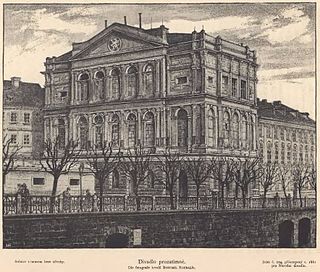
The Prague Provisional Theatre was erected in 1862 as a temporary home for Czech drama and opera until a permanent National Theatre could be built. It opened on 18 November 1862 and functioned for 20 years, during which time over 5,000 performances were presented. Between 1866 and 1876 the theatre staged the premieres of four of Bedřich Smetana's operas, including The Bartered Bride. The Provisional Theatre building was eventually incorporated into the structure of the National Theatre, which opened its doors on 11 June 1881.

Irma Reichová was a Czech operatic soprano who had an active career appearing in European opera houses during the latter half of the nineteenth century. A dramatic soprano, she was admired for both her musical and acting talent. She is best remembered for appearing in the world premieres of a number of operas by Antonín Dvořák and Bedřich Smetana.
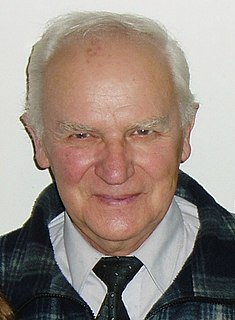
Jaroslav Souček was a Czech operatic baritone who had an active career in his native country from 1960 through 1997. He sang a broad repertoire that encompassed roles from Czech, English, French, German, Italian, and Russian operas from a variety of musical periods. He was also active as a concert singer and performed numerous times with the Czech Philharmonic. His voice is preserved on a number of Czech radio broadcasts and CD and DVD recordings made on the Supraphon label.
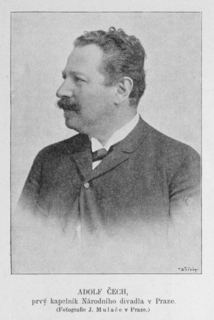
Adolf Čech was a Czech conductor, who premiered a number of significant works by Antonín Dvořák, Bedřich Smetana, Zdeněk Fibich and other Czech composers. He also led the first performances outside Russia of two operas by Pyotr Ilyich Tchaikovsky and the Czech premieres of seven operettas by Jacques Offenbach. He was also a bass singer and a translator of opera librettos.
Music of the Czech Republic comprises the musical traditions of that state or the historical entities of which it is compound, i.e. the Czech lands. Czech music also constitutes a substantial part of the music culture of its direct predecessor, Czechoslovakia.
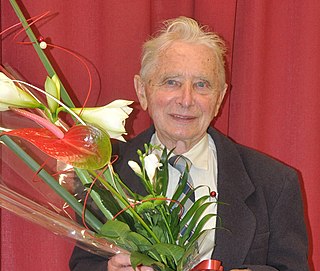
Karel Pexidr, is a Czech writer, lawyer, philosopher and composer of classical music.
